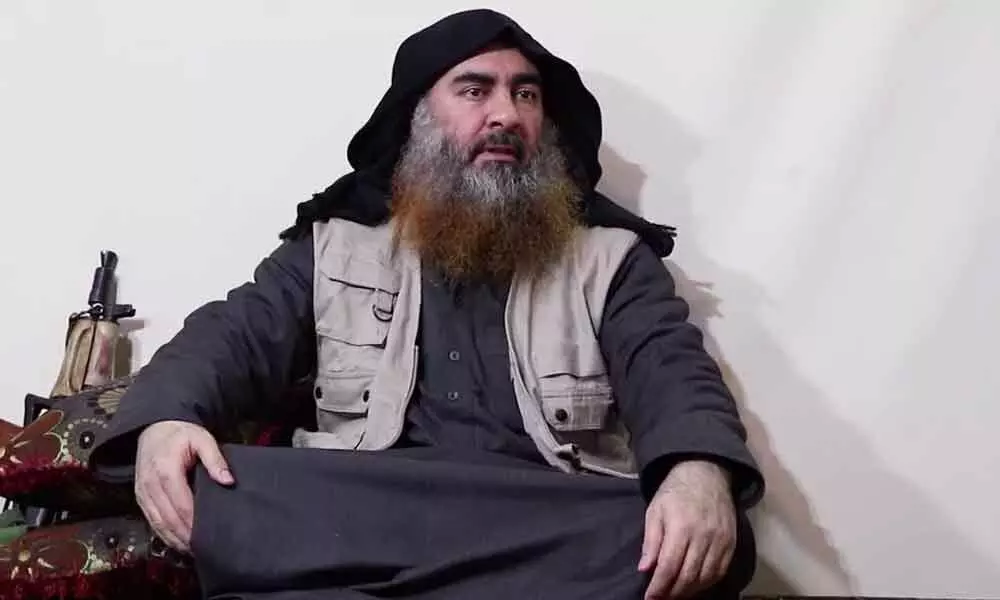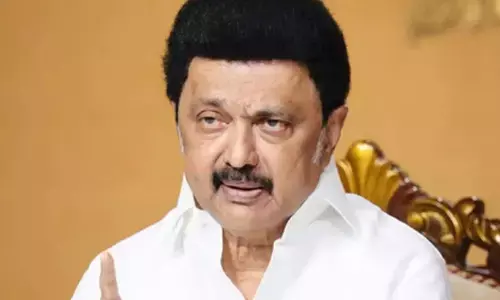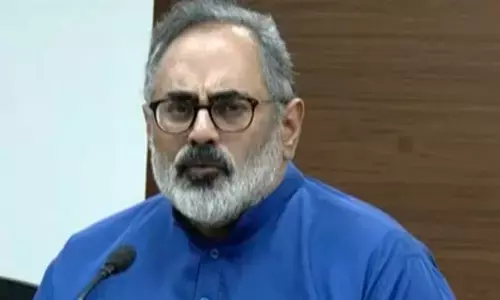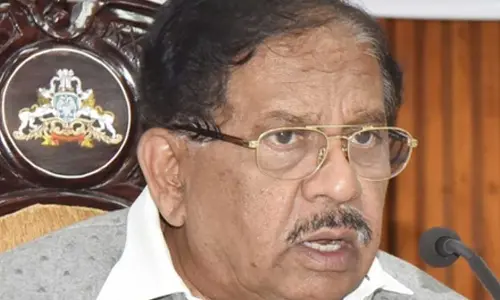Donald Trump says Islamic State leader Baghdadi dead in U.S. forces raid

Fugitive Islamic State leader Abu Bakr al-Baghdadi died "whimpering and crying" in a raid by U.S. special forces in northwest Syria, President Donald Trump announced on Sunday, in a major blow to the jihadist group.
WASHINGTON: Fugitive Islamic State leader Abu Bakr al-Baghdadi died "whimpering and crying" in a raid by U.S. special forces in northwest Syria, President Donald Trump announced on Sunday, in a major blow to the jihadist group.
Baghdadi killed himself during the raid by detonating a suicide vest after fleeing into a dead-end tunnel, Trump said in a televised address from the White House.
He was positively identified by DNA tests 15 minutes after he died, the president said.
"He was a sick and depraved man and now he's gone."
Trump said "many" of Baghdadi's people were killed and added that in blowing himself up, Baghdadi also killed three children.
U.S. forces suffered no personnel losses, he said, with the only injury being to a military dog. He also thanked Russia, Turkey, Syria and Iraq for their support.
Turkey said it was proud to have helped "bring a notorious terrorist to justice" and Israel's Prime Minister Benjamin Netanyahu congratulated Trump on an "impressive achievement".
But Russia's response was muted, with the defence ministry in Moscow saying merely that it had no reliable information on the U.S. raid.
Baghdadi had long been sought by the United States as head of a jihadist group that at one point controlled large areas of Syria and Iraq, where it declared a caliphate. Islamic State has carried out atrocities against religious minorities and attacks on five continents in the name of an ultra-fanatic version Islam that horrified mainstream Muslims.
In recent years the group had lost most of its territory.
But while the destruction of the quasi-state that Baghdadi built has denied the group its recruiting tool and logistical base from which it could train fighters and plan coordinated attacks overseas, most security experts believe Islamic State remains a threat through clandestine operations or attacks.
"The thug who tried so hard to intimidate others spent his last moments in utter fear, panic and dread, terrified of the American forces coming down on him," Trump said.
"He reached the end of the tunnel as our dogs chased him down. He ignited his vest, killing himself and his three children. His body was mutilated by the blasts. The tunnel had caved on him," Trump added.
"He died after running into a dead-end tunnel, whimpering and crying and screaming."
SOUND OF PLANES
In the hours before Trump's announcement, sources in the region had described the raid on a compound in the village of Barisha, in Idlib province bordering Turkey, in the early hours of Sunday.
"We woke up to the sound of planes, we went out and saw (forces) in front of us carrying weapons. 'Get on the ground, get on the ground!' (they said) so we went down," one local resident told Reuters TV.
"They handcuffed us and put us to the side. (They asked)'How do you know this man?' We said we don't know him, we would see people coming and going but we never interacted with them. So they said, 'you are safe, stay to the side'."
Iraqi state television broadcast night-time footage of an explosion and daytime images of a crater in the ground and what it said was the aftermath of the raid, including torn and blood-stained clothes.
Iraq's military said later in a statement that its intelligence services had located Baghdadi's whereabouts and had passed the information to the United States.
Trump said eight helicopters carried the U.S. special forces troops to the compound where Baghdadi was hiding, where they were met with gunfire before blasting their way in through the walls to avoid a booby-trapped main door.
The U.S. forces spent around two hours in the compound, he said, adding that they had taken away "sensitive information" relating to Islamic State.
Russia "treated us great" by opening up its airspace for the raid and Kurdish allies gave some helpful information, according to Trump.
The president said he watched the operation unfold in the Situation Room of the White House, with Vice President Mike Pence, Defence Secretary Mark Esper and the joint military chiefs.
He added that Russia had not been aware of the nature of the U.S. mission.
WITHDRAWAL CRITICISED
Trump had faced withering criticism from fellow Republicans and Democrats for announcing a withdrawal of U.S. troops from northeastern Syria earlier this month, which permitted Turkey to attack America's Kurdish allies as it sought to set up a "safe zone".
Trump said the raid would not change his decision to withdraw troops from Syria.
Many critics of the pullout have expressed concern both at the abandoning of the Kurdish forces who had been instrumental in defeating Islamic State in Syria, and that the move might allow the group to regain strength and pose a threat to U.S. interests.
The successful targeting of Baghdadi in the raid could help blunt those concerns, as well as boosting Trump domestically at a time when he is facing an impeachment inquiry in the U.S. House of Representatives.
At the height of its power, Islamic State ruled over millions of people in territory running from northern Syria through towns and villages along the Tigris and Euphrates valleys to the outskirts of the Iraqi capital Baghdad.
Thousands of civilians were killed by the group as it mounted what the United Nations called a genocidal campaign against Iraq's Yazidi minority.
It also caused worldwide revulsion by beheading foreign nationals from countries including the United States, Britain and Japan.
The group has claimed responsibility for or inspired attacks in dozens of cities including Paris, Nice, Orlando, Manchester, London and Berlin, and in nearby Turkey, Iran, Saudi Arabia and Egypt.
But in 2017 the group lost control of Mosul in Iraq and Raqqa in Syria, and quickly thereafter almost all of its territory, turning Baghdadi into a fugitive.
During a three-year push by a U.S.-led coalition, air strikes killed most of his top lieutenants and there were conflicting reports over whether Baghdadi was alive until IS published a video message by him in April.
Despite losing its last significant territory, IS is believed to have sleeper cells around the world, and some fighters operate from the shadows in Syria's desert and Iraqi cities.














